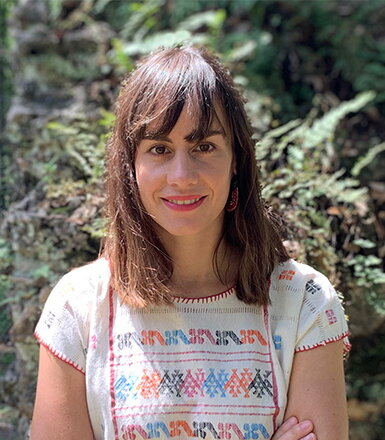Biography
Magdalena Novoa’s work focuses on the intersections of historic preservation and social justice, the politics of cultural heritage and memory, grassroots organizing, and alternative planning approaches in the Americas. She is particularly interested in how cultural heritage and planning principles are mobilized by various actors to integrate or segregate historically marginalized groups, as well as the challenges that arise from the changing and globalized landscapes of cities. Dr. Novoa combines ethnographic, archival, participatory, and arts-based methods to understand the tensions between local knowledges and formal heritage and planning approaches and its implications in citizenship constructions. Through her engaged scholarship in Chile, she has investigated the role of memory in place-making and insurgent planning and assisted communities in making their places, narratives and practices more visible to policymakers, practitioners, and academics.
A native from Chile, her interest in historic preservation and cultural heritage as a resource for community development has been a sustained topic of her academic and professional experience. Prior to coming to the United States, Dr. Novoa worked in the National Monuments Council of Chile as head of the Education and Participation department, facilitating education and participatory processes in national and world heritage sites. Before that, she worked in the Sorrel Foundation and Open City Foundation in the UK, leading participatory design and planning processes and action research to involve youth in designing and planning their environments. She continues to connect research to practice by partnering with community organizations and NGOs, including her ongoing collaboration with Aldea foundation in Chile.
Magdalena Novoa received her Ph.D. from the University of Texas at Austin. She also holds a M.A. in Arts and Cultural Management from the London School of Communication, a B.A. in Fine Arts from Pontificia Universidad Católica de Chile, and a B.A. in Education from Universidad Gabriela Mistral.
Research Interests
The politics of historic preservation and cultural heritage in planning; politics in feminine and place-based ethics of care; alternative planning approaches, insurgency, citizenship, and social justice; Insurgent heritage and the role of memory in planning; the role of the arts in community development and grassroots practices; Change and cultural landscapes; decolonial approaches to research and situated methodologies.
Education
- Ph.D. from the University of Texas at Austin
- M.A. in Arts and Cultural Management from the London School of Communication
- B.A. in Fine Arts from Pontificia Universidad Católica de Chile
- B.A. in Education from Universidad Gabriela Mistral
Additional Campus Affiliations
Assistant Professor, Urban and Regional Planning
Assistant Professor, Center for the Study of Global Gender Equity
Assistant Professor, Center for Latin American and Caribbean Studies
Recent Publications
Guske, E. L., Johnson, M. F., & Novoa, M. (2025). “Everything we do matters”: Contesting the Dakota Access Pipeline in rural Iowa through insurgent planning. Environment and Planning D: Society and Space, Article 02637758251349885. Advance online publication. https://doi.org/10.1177/02637758251349885
Novoa, M., & Vasudevan, R. (2025). Relational Engagements and Embodiments: Exploring Pluriversalities of Community-Based Scholarship in Planning. Planning Theory and Practice, 26(1), 85-105. https://doi.org/10.1080/14649357.2025.2479502
Novoa, M., & Aguilera, E. (2025). Situated pedagogies in preservation planning: transgressing borders and co-producing knowledge through artsbased and engaged scholarship. In Decolonizing Planning: Power and Knowledge in the Informal City (pp. 185-206). Edward Elgar Publishing. https://doi.org/10.4337/9781035319978.00016
Novoa, M., & Morales Fredes, D. (2024). “We were replaced by pines”: dispossession, displacement, and the colonial wound in Pilpilco’s coal plant closure. Labor History, 65(3), 316-336. https://doi.org/10.1080/0023656X.2024.2326029
Novoa, M. (2023). Gendered nostalgia: grassroots heritage tourism and (de)industrialization in Lota, Chile. Journal of Heritage Tourism, 18(3), 365-383. https://doi.org/10.1080/1743873X.2020.1867561
